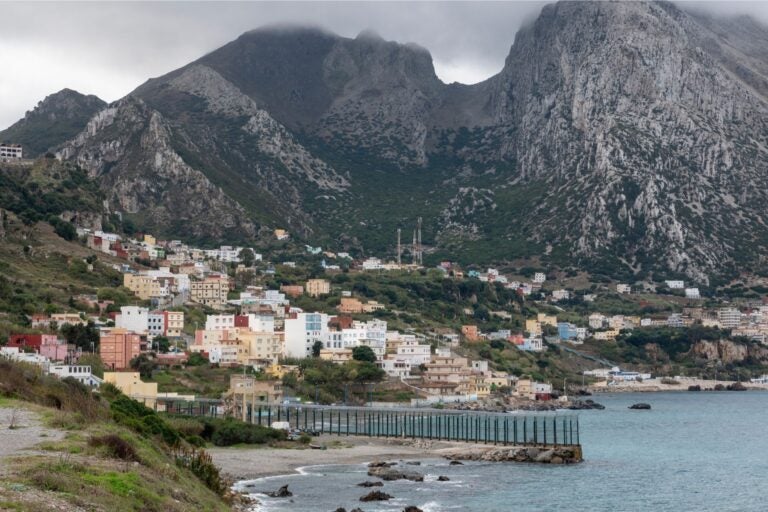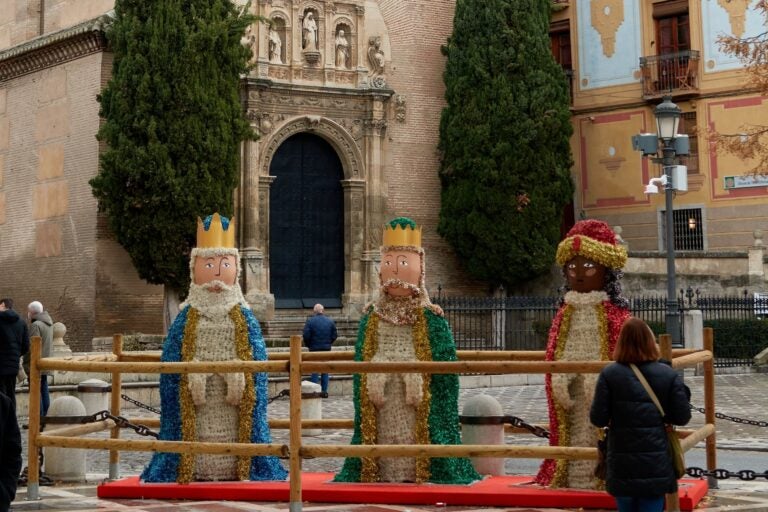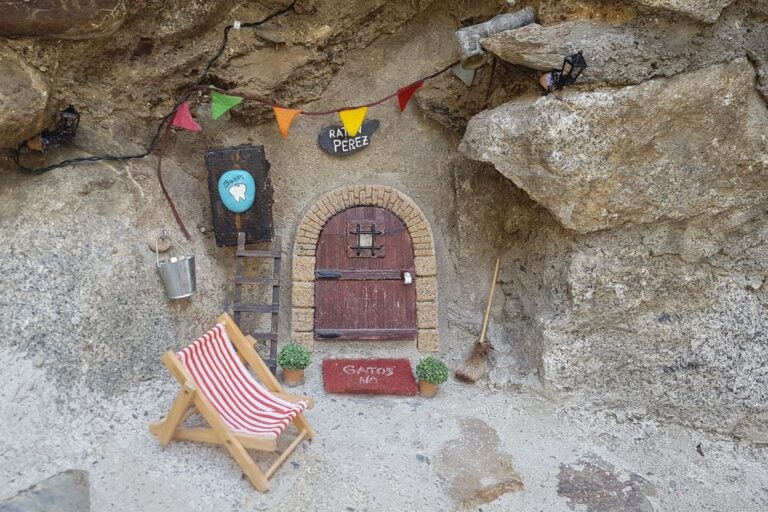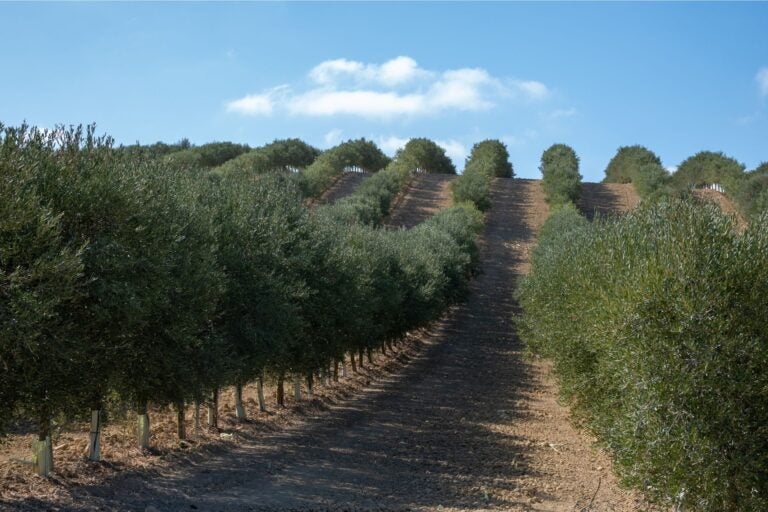10 Fun facts about Spain: Beyond flamenco and sangria!
Dive into 10 fun facts about Spain. Explore its unique borders, oldest restaurants, tomato fights, and more.
Did you know Spain has the world’s largest number of Blue Flag beaches? These beaches receive the Blue Flag for meeting criteria for safety, cleanliness, and environmental sustainability. Welcome to Spain, the home of Don Quixote and olive oil! While you might know some of its rich history, many fun facts about Spain go unnoticed.
Read on to discover 10 fun facts about Spain. Looking to uncover these facts in person? You’ll need an eSIM to keep you connected. With Holafly’s unlimited data travel eSIM, you can explore Spanish culture freely.
1. Spain is the only country in Europe that shares a physical border with an African country

One of the unique facts about Spain is its direct land connection to Africa. Two autonomous Spanish cities exist in North Africa: Ceuta and Melilla. These enclaves on the North African coast are remnants of Spain’s colonial past. This geographical quirk makes Spain a truly unique crossroads between continents.
2. Spain is home to the world’s oldest restaurant

If you’re looking for interesting facts about Spain’s food, this one’s great! Spain boasts a reputation as a historical food paradise. Botín Restaurant in Madrid, established in 1725, holds the Guinness World Record for the oldest continuously operating restaurant. The Madrid population flocks to a place that’s been serving traditional Spanish cuisine for nearly 300 years, and their roast suckling pig is their specialty. Botín Restaurant has some of the best food in Spain, and highlights fun facts about Spain’s culture.
3. There’s a “Tomato Fight” festival called La Tomatina

Get ready for some weird facts about Spain! Every August, the town of Buñol, Valencia, attracts thousands of people who gather for La Tomatina, the world’s largest food fight. Spain hosts this fun event where participants chase each other along the city streets to throw tomatoes at each other for fun! It’s a chaotic and unique festival that showcases Spain’s playful spirit – just make sure you have the right mobile internet connection in Spain to locate a laundrette after the fun!
4. Spain has more vineyards than any other country

France and Italy might be more famous for their wine production, but here’s a fun fact about Spain: it boasts the largest area of land under vine cultivation in the world, and free wine fountains in some areas of the country! Spain’s climate and proximity to the Mediterranean Sea allow for many grape varieties, from the Tempranillo of La Rioja to the Albariño of Galicia. The vineyards blanketed over beautiful towns also make for a popular destination wedding location, so if you’re considering getting married in Spain, a vineyard might be for you!
5. You can find “living” human towers in Catalonia

This may be one of the most incredible things about Spain! In Catalonia, human towers called “castells” are a cherished tradition. Teams of “castellers” build intricate and astonishingly tall human structures, sometimes reaching nine or ten stories high. This display of teamwork, balance, and bravery is recognized by UNESCO as an Intangible Cultural Heritage of Humanity and a captivating fun fact about Spain. This tradition is a pleasure to learn about, and with the right Spain travel guide, you can continue to discover more.
6. Christmas in Spain has some unique traditions

If you’re curious about fun facts about Christmas in Spain, you’re in for a treat! While many countries celebrate Santa Claus, Spanish children eagerly await the arrival of the Three Kings (Reyes Magos) on January 6th, who bring gifts and candy. This traditional custom and a hearty plate of paella, often considered Spain’s national dish, add a special flavor to the festive season.
7. Spain was the first country to outlaw bullfighting in 1991 (in the Canary Islands)

While bullfighting remains a controversial topic in parts of the country, here’s an interesting fact about Spain: the Canary Islands were the first autonomous community to ban bullfighting in 1991. Though it still exists elsewhere, this highlights a shifting perspective within the country regarding this tradition. This fact offers a window into the evolving social landscape and Spain’s interesting facts.
8. There is a Tooth Fairy equivalent, and it’s a mouse!

Here’s a delightful fun fact about Spain for kids! Instead of a Tooth Fairy, Spanish children are visited by Ratoncito Pérez (Little Mouse Pérez) when they lose a tooth. This charming mouse collects the lost tooth and leaves a small gift in its place. It’s a sweet cultural detail that showcases the whimsical side of Spanish folklore.
9. Spain is the only country in Europe with a desert climate

Beyond its sunny coasts, Spain’s fun facts include surprising geographical diversity. The Tabernas Desert in Almería, Andalusia, is the only true desert in mainland Europe. Its arid landscape and canyons have made it a popular filming location for Hollywood Westerns, earning it the nickname “Europe’s Hollywood.” This adds an unexpected dimension to the country’s natural beauty.
10. Spain is one of the world’s leading producers of olive oil

Here’s a tasty fun fact about Spain! The country is responsible for over 40% of the world’s olive oil. The vast olive groves, particularly in Andalusia, create breathtaking landscapes and are a cornerstone of Spanish agriculture and cuisine. The world’s largest producer of this liquid gold is a key ingredient in Mediterranean diets and is a testament to Spain’s agricultural heritage. It’s a wonderful Spain fun fact that highlights a significant contribution to global gastronomy!
Explore these fun facts about Spain in person with Holafly
Spain stands out against any other European country. After exploring its fun facts and rich history, if you’re wanting to take a trip and brush up on your Spanish with native speakers, something you must have is a reliable internet connection.
Unlimited data travel eSIMs make staying connected a breeze. Holafly’s eSIM for Spain has unlimited data and the flexibility of choosing your ideal plan, as well as 24/7 customer support.
For as little as $4.27 a day for a 7-day trip to Spain, you can get unlimited internet and 500 MB of hotspot sharing daily.
As Spain attracts thousands of visitors, you may want to travel longer, perhaps through Basque Country or Northern Spain as a remote worker or digital nomad. Holafly Connect might be a better choice if you’re planning longer-term travel. Use your phone in Spain to navigate, translate, and explore Spain’s fun facts and famous landmarks in person.





 Language
Language 


















 No results found
No results found










